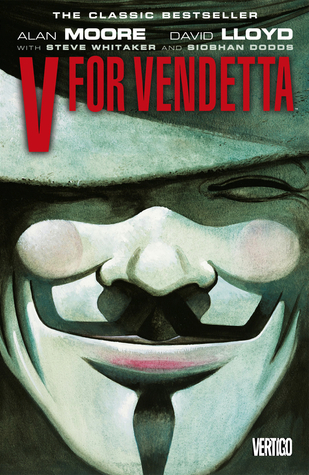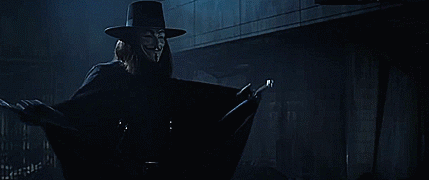What do you think?
Rate this book


296 pages, Hardcover
First published January 14, 1990



















“The past can't hurt you anymore, not unless you let it.”The part of this book that will stay with me the most is one the author could never have intended when he wrote it 30 years ago. On the second page, the government spokesperson in this fascist Britain implores those listening to “make Britain great again.” Talk about art imitating life.
…
“Behind this mask there is more than just flesh. Beneath this mask there is an idea... and ideas are bulletproof.”